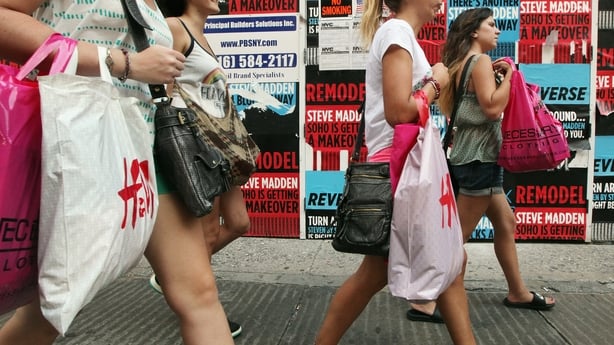Euro zone business activity weakened last month as new orders came in at a slower pace than first reported and fewer jobs were created.
This is despite services firms raising prices for the first time in four years.
The data point to modest third-quarter growth and, coming six months after the European Central Bank launched its €60 billion a month quantitative easing programme, are likely to disappoint policymakers.
Markit's final September Composite Purchasing Managers' Index (PMI) came in at a four-month low of 53.6 and weaker than an earlier estimate of 53.9. In August, it was 54.3.
The index has been above the 50 mark denoting expansion since July 2013.
"The final PMI reading came in slightly below the earlier flash estimate but still leaves a signal of the euro zone economy having expanded 0.4% in the third quarter," said Chris Williamson, chief economist at survey compiler Markit.
"However, the failure of the economy to pick up speed over the summer will be a disappointment to the ECB, especially with job creation sliding to an eight-month low," he added.
The PMI for the dominant service industry dipped as well, settling at 53.7 from August's 54.4 and lower than a flash estimate of 54.
A similar survey of manufacturing firms released last week had also fallen, to 52 from 52.3.
Cooling new business orders, which came in much weaker than the flash reading, led firms to take on staff at the slowest pace since January.
But in one piece of bright news, the service sector PMI showed firms charged higher prices last month for the first time since August 2011.
Several ECB policymakers, led by President Mario Draghi, have publicly hinted the €1 trillion stimulus programme could be increased or extended if inflation is seen failing to meet the central bank's near 2% target.
Those calls grew louder last week after official data showed euro zone inflation slipped below zero again in September.
An earlier composite PMI from Germany, Europe's number one economy, fell to 54.1, weaker than a flash estimate of 54.3 and lower than August's 55.
Meanwhile, France's composite reading rose to 51.9, a three-month high, and pointed to 0.2% growth in the third quarter, according to Markit.
Euro zone retail sales flat in August despite fuel, food gains
Euro zone retail sales were unchanged in August from July as consumers filled up their cars with more petrol and diesel, but spent less on non-food products such as clothing, books and electrical goods.
The European Union's statistics office Eurostat said retail sales in the euro zone was unchanged during August for a 2.3% year-on-year increase.

Economists polled by Reuters had expected a 0.1% monthly decline and a 1.8% annual increase.
The weak reading in what for many is a holiday month followed a strong performance in July, when sales only fell for computer equipment and books.
July's expansion was also revised up to 0.6% on a monthly basis and 3% year-on-year.
Sentiment in the euro zone's retail sector has risen steadily since June, with a pick-up in the views of both present and future sales.
However, consumer confidence, as measured by the European Commission's monthly economic sentiment survey, has weakened over that time.
The volume of broadly cheaper automotive fuel sold rose by 1.8% during the month, while sales of food, drinks and tobacco also grew 0.8%. However, non-food product sales declined by 0.3%.
Retail sales in the euro zone's biggest economy Germany were down 0.4% month-on-month in August and were 0.3% higher in the second biggest France.
In the 28 countries of the European Union, sales were also flat in August month-on-month and up 2.6% from a year earlier.

